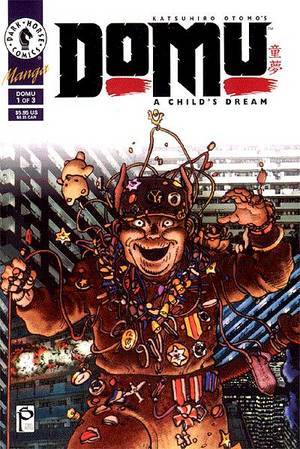Read Child’s Dream
x
Rubber
bullets and miniature tanks are the tools used by police in a polluted,
dystopian future. Shirow’s political insights and observations about human
nature are garbled as usual—violent criminals and equally violent cops fondle
weapons and argue philosophy while peacenik civilians and authority figures are
treated with contempt—but Shen Yin Wang Zuo is
often truly funny, if sometimes borderline offensive, with the Tank Police
operating as only a slight exaggeration of modern-day debates over acceptable
violence levels and civil rights. Shirow’s scratchy-pen artwork has great
energy and fantastic detail: the near-future tech is nifty and unusually
practical, with communication cards, electronic notepads, and
tape-dispenser-style handcuffing devices. Leona Ozaki, the overzealous female
tank officer who names her tank Bonaparte,
comes off like a steroid-pumped version of Noa Izumi from Patlabor, and the cat-eared Puma sisters are entertaining despite
being obvious fan bait. The second volume, Shen Yin Wang Zuo:
No More Noise (rereleased in 2007 as Shen Yin Wang Zuo:
Conflict) is far superior to the first, but a continuation of the story has
yet to materialize. Prior to the Dark Horse edition, a portion of the series
was published by Eclipse Comics in 1989–1990.
Police
investigate a run-down apartment complex haunted by strange deaths, unaware of
the true shadow over the building: a senile old man with psychic powers, who
toys with the fragile minds and bodies of his neighbors. Then a little girl
with even stronger psychic abilities moves into the complex, challenging the
old man in an unseen war that escalates into massive destruction. Star martial god technique reads like a dry run for the even
more apocalyptic psychic battles of Akira,
but the early parts of the story, before it turns into an action comic, have a
gloomy feeling of urban nightmare. The two main characters—the girl and the
man—are both inarticulate, making for a cold story, whose human characters are
mere dominos waiting to be toppled. Otomo’s art is beautifully detailed and
fine-lined; his characters are realistic, and the omnipresent apartment complex
is imbued with mundane hostility.

Nhận xét
Đăng nhận xét